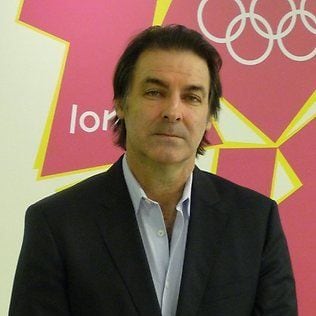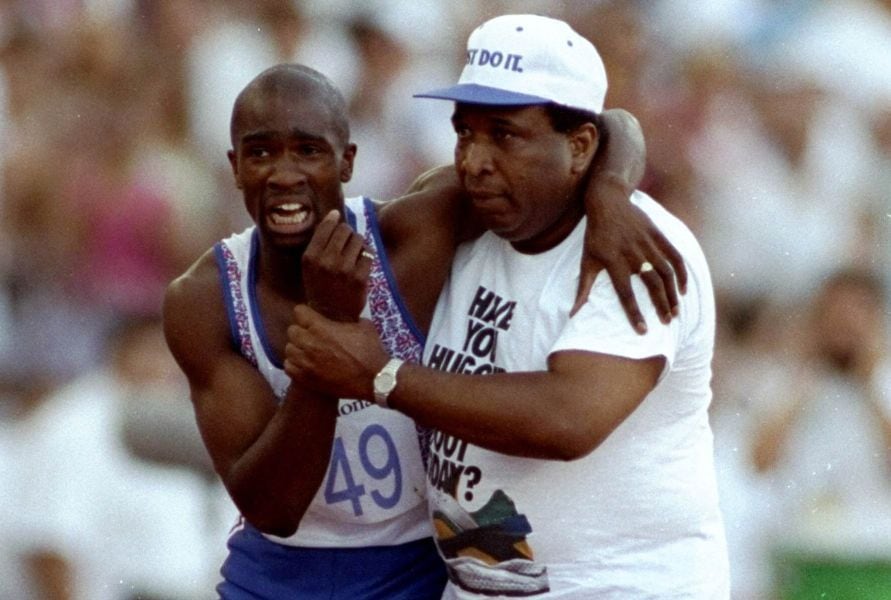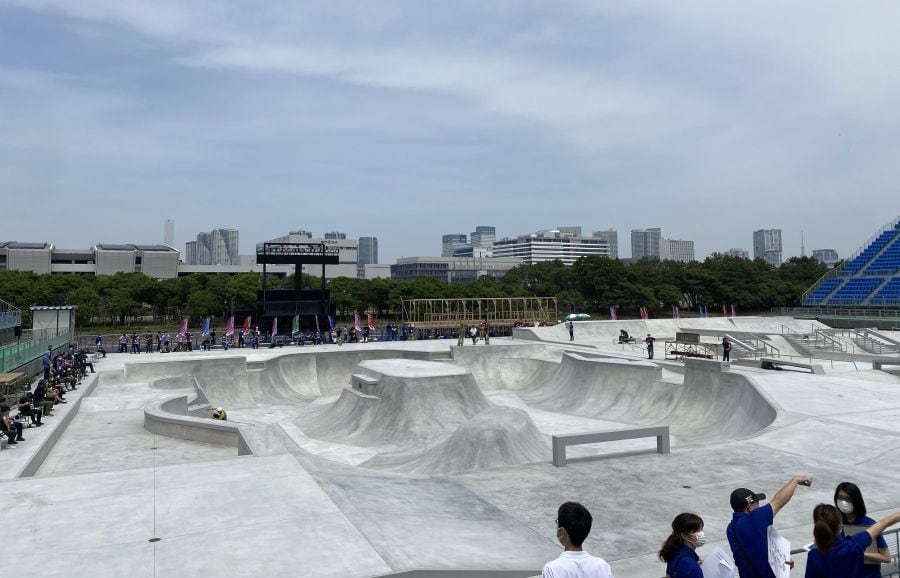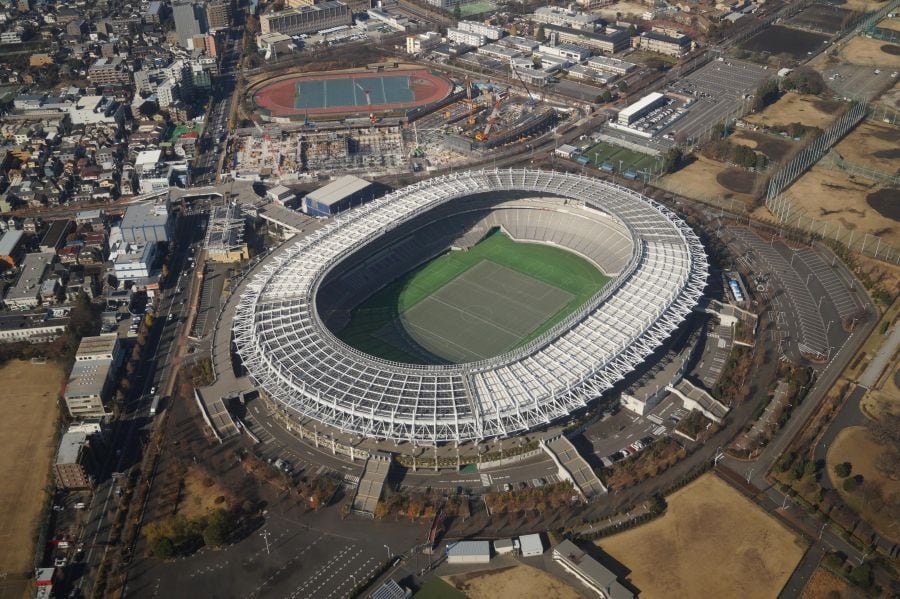
By Michael Pirrie
The long awaited decision confirming crowd numbers for the Games reveals the final and most important big policy piece that has been missing from Tokyo’s preparations.

Michael PirrieThe spectator plans will define the Tokyo Games experience in terms of safety for athletes and the public.
They will also help to shape future directions in planning for Olympic Games and major international sport in the Covid era and beyond.
The 10,000 limit on domestic fans has been the headline number but there are no guarantees.
Like tickets for the Games, the policy comes with terms and conditions attached.
Japan’s senior medical figures advocating for the Games behind closed doors, and Prime Minister Yoshihide Suga’s government has indicated Olympic events could still take place without spectators if the virus situation worsens.
The prospect of ghost Games in Tokyo heralds a new stage in the delivery and history of the world’s biggest and most important sporting event.
The spectator policy is a defining point with the past.
Full venues have been at the center of iconic Olympic moments.

Derek Redmond and his father at Barcelona 1992 (IOC)These include the drama surrounding British athlete Derek Redmond, whose father emerged from the stands of the Barcelona Olympic stadium to help his injured son complete a semifinal 400 meters sprint.
The sight of the athlete’s devastated father stumbling with his stricken son to the finish line prompted an unprecedented standing ovation from the 65,000 spectators watching on. It still resonates emotionally decades later.
While spectators have long been an essential Games feature, the dramatic drop in spectator numbers for Tokyo was just as essential to combat a virus that doesn’t need a ticket or day pass to enter venues.
Tokyo’s minimum or no spectator policy paradoxically will be fundamental to the success of the Games.
The ceiling on numbers comes at a critical time as Olympic and government authorities attempt to restrict the spread of corona variants that can be transmitted even by fleeting contact.
Containing corona will be the single biggest focus in the final countdown to the Games as preparations move rapidly into overdrive.
This includes the growing number of foreign teams beginning to arrive and venues being activated.
THE NUMBERS GAMES
The virus represents a near and present danger wherever people move and gather.

Smaller venues, including for skateboarding, will allow 50 percent capacity. (ATR)Reducing risk in Games settings means reducing numbers and movement.
Fewer spectators will reduce the need for pre-Games venue infrastructure preparations and staffing, and reduce potential spread of the virus.
The cap on spectator numbers, importantly, will reduce spectator services, hospitality, cleaning, catering, transport and other requirements during the Games.
This - along with dramatic cuts to Olympic stakeholder and participant group numbers - will reduce the scale of the Games, and flurry of movement, activity and people in and around Olympic venues and communities.
This will cut the movement of the virus and potential number of exposure sites during the Games.
SCREENING THE GAMES
While the Olympic Games has long been a made for television event, a possible shut out of local fans could make Tokyo the first Olympic Games for television and digital screens only.

A maximum 10,000 spectators are currently planned for events at the National Stadium during the Games.(Tokyo 2020)This would draw the biggest global television audiences since the Apollo moon landing.
"Irrespective of whether we have spectators or not we’re going to see one thing; it's that the outside world will come into the stadiums, although digitally," IOC executive director, Christophe Dubi, said earlier this year.
Olympic broadcast partner NBC alone will present an unparalleled 7,000 hours of Games coverage utilizing two broadcast networks, six cable networks and multiple digital platforms.
Tokyo is expected to be the biggest media event ever, surpassing television audiences for the London 2012 Games, which totaled 4.8 billion people, representing approximately 69 percent of of the world’s population.
A spectator lock out would turn venues into no go zones to protect athletes, essential staff and host city communities from a virus outbreak; stop the mega sporting event from becoming a mega virus event.
While a spectator freeze would slash ticketing and merchandise revenues, it would help to keep the vital sports competition schedules on track for athletes and the commercially important and revenue generating broadcasters and media rights holders and top tier partners.
EUROS WARM UP FOR THE GAMES
Hopes were high that the delayed Tokyo Olympic Games, along with the Euros currently in play, might transcend the toll of Covid illness, isolation and suffering that has overwhelmed the planet.
With 24 national teams and 51 games scheduled across 11 host countries over 30 long days during the pandemic, these Euros also have been a compelling warm up for the Olympic Games.
The second biggest sporting event of this turbulent year, the Euros have reflected some of the hopes, challenges and possibilities ahead for the Tokyo Games.
LAZARUS-LIKE SPORT
 The tournament has highlighted the power of sport to unite the world even in pandemic times.
The tournament has highlighted the power of sport to unite the world even in pandemic times.This includes the heart stopping moment of Christian Eriksen’s collapse and miraculous return from a seemingly hopeless situation.
The footballer’s Lazarus-like comeback lifted the Covid cloud of despair and was rejoiced universally in nations far beyond continental Europe.
As the Swiss writer Erik Niva commented on Eriksen’s remarkable recovery, "Denmark lost but life won."
Ronaldo’s removal of Coke bottles from his press conference table has not removed the fizz, sparkle and fantasy of football from the tournament or the world.
The unexpected progress deep into the championships by Italy - swamped by a tidal wave of death and disease at the outset of the pandemic – has been a much needed revelation and demonstration of resilience.
The team has brought optimism and belief back to the nation. And to others in search of hope and direction in dire circumstances.
While spectators might only play cameo roles as venue props in Tokyo, making comparisons with the sell out crowds of former Games inevitable but not helpful.
We are now in a new era of world and sporting history. As the writer LP Hartley once suggested: "The past is a foreign country, they do things differently there."
Tokyo will be different and unrecognizable in many ways to past Games.
The coronavirus has challenged medical and scientific perceptions and possibilities about the pandemic
With or without spectators, the Tokyo Games will have athletes, hope, suspense, fear, dreams, despair, redemption, courage, world records, healing and performances that will also extend boundaries and expectations of what might be possible.
Homepage photo: IOC
Michael Pirrie has extensive experience in Olympic Games planning, operations and communications. This includes working as Executive Advisor to the London 2012 Olympic Games Organising Committee and Chair, Seb Coe
For general comments or questions,click here.
Your best source of news about the Olympics is AroundTheRings.com, for subscribers only.
Últimas Noticias
Sinner-Alcaraz, the duel that came to succeed the three phenomenons
Table tennis: Brazil’s Bruna Costa Alexandre will be Olympic and Paralympic in Paris 2024

Rugby 7s: the best player of 2023 would only play the medal match in Paris

Rhonex Kipruto, owner of the world record for the 10000 meters on the road, was suspended for six years

Katie Ledecky spoke about doping Chinese swimmers: “It’s difficult to go to Paris knowing that we’re going to compete with some of these athletes”



